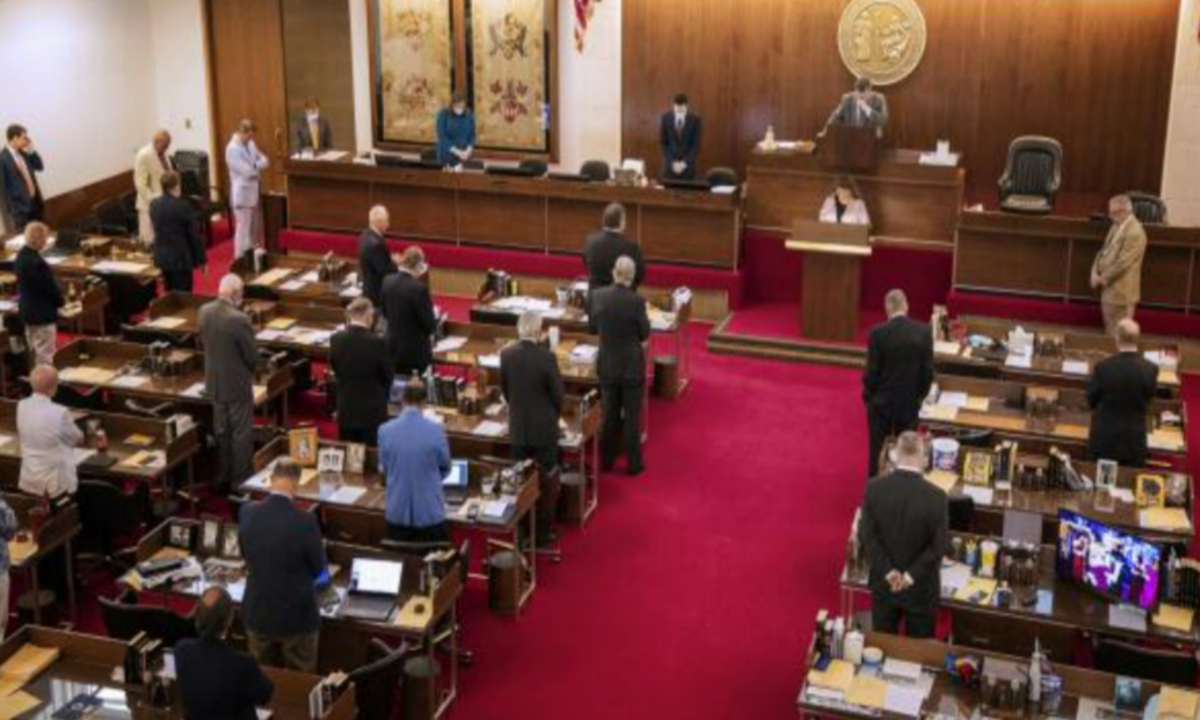As the debate over immigration intensifies, North Carolina’s Republican lawmakers are working to introduce a series of new bills aimed at making it harder for undocumented immigrants to stay in the state. With a focus on stricter laws, these bills cover everything from increasing criminal penalties for immigrants to limiting the rights of sanctuary cities.
Key Proposals and What They Mean
With the new session of Congress underway, Republican lawmakers in North Carolina, including Senators Thom Tillis and Ted Budd, and Representatives Brad Knott, Chuck Edwards, and Richard Hudson, have already started pushing for tougher immigration policies. The bills they’ve introduced aim to tighten the rules around immigration, making it easier to deport undocumented immigrants and putting more restrictions on sanctuary cities.
One of the most significant proposals is the Laken Riley Act, which focuses on criminal behavior. This law would require the Department of Homeland Security to detain anyone who is charged with crimes like theft or burglary, even if they haven’t been convicted. It is named after a 22-year-old student who was murdered by an immigrant who had been repeatedly arrested but had not been deported.
While some view this as a necessary step to protect American citizens, others, like Nikki Marín Baena from the group Siembra NC, argue that the focus on immigration is taking away from more urgent issues like the economy. “The No. 1 issue North Carolinians were concerned about was the economy, and this immigration legislation does nothing to address that,” she said.
What’s in the Bills?
The new bills introduced by North Carolina Republicans target a variety of issues related to immigration. Some proposals include:
Increased Criminal Penalties for Immigrants: The bills would make it easier to deport immigrants who commit serious crimes, including assaulting police officers, domestic violence, and even Social Security fraud.
DNA Testing for Immigrant Families: Another bill would require DNA tests to confirm the relationship between children and adults traveling together at the border.
Fines for Sanctuary Cities: Lawmakers have also introduced bills that would withhold federal funds from sanctuary cities. These are areas where local law enforcement has refused to fully cooperate with federal immigration authorities. North Carolina counties like Buncombe and Mecklenburg are seen as sanctuary cities by some groups because they don’t always honor detainer requests from U.S. Immigration and Customs Enforcement (ICE).
Stronger Border Security: There is also a push to allow border states to build temporary barriers to prevent illegal immigration. This mirrors proposals that were part of President Trump’s immigration agenda.
Requiring Proof of Citizenship to Vote: Some bills aim to make it mandatory to prove U.S. citizenship before voting in federal elections. This is seen as a way to ensure only legal citizens are participating in elections, though critics argue that it is unnecessary and could lead to voter disenfranchisement.
The Impact on Immigrants and Their Families
Many of these proposals have sparked fear among immigrant communities. Siembra NC, which advocates for immigrant rights, reports a significant increase in calls to its hotline since the start of the year, with people worried about potential deportations and their families being separated. “What they’re trying to do is create an environment of fear and panic,” Marín Baena added.
The bills could lead to more people being detained or deported, even if they haven’t been convicted of a crime. Critics argue that this could make immigrants feel unsafe and unwanted in their own communities.
The Sanctuary City Debate
Sanctuary cities, or counties, are another major focus of these new immigration bills. North Carolina lawmakers are pushing to penalize cities that don’t fully cooperate with ICE. Some counties, such as Durham and Wake, have been called sanctuary cities because they don’t always comply with federal immigration detainer requests. Critics of sanctuary cities say they create a safe haven for criminals, while supporters argue that these policies help protect immigrants from being unfairly targeted.
What’s Next?
As these bills move through the legislative process, many are watching to see whether they will gain enough support to pass into law. While Republicans argue that these measures are necessary for public safety, opponents warn that they could lead to more division and fear within immigrant communities.
One thing is clear: the debate over immigration in North Carolina is far from over. With new proposals on the table, lawmakers will continue to push for stricter policies, while groups advocating for immigrants are working hard to defend their rights.
Disclaimer—Our team has checked this article to ensure its accuracy and eliminate any misinformation. We are committed to providing clear and reliable information for our readers.




